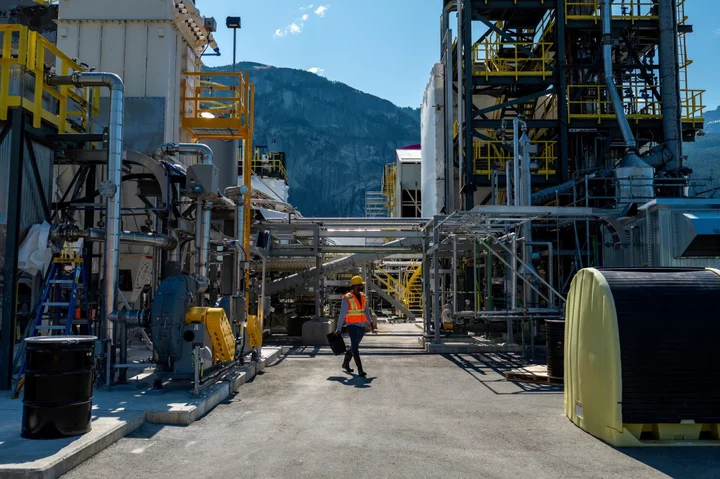Canada introduced guidelines to ban some fossil fuel subsidies, targeting those that disproportionately benefit oil and gas, solely support sector activities or endorse consumption of fuels that worsen climate change.
Environment Minister Steven Guilbeault billed the move as the first fulfillment among Group of 20 nations of a decade-old climate promise.
G-20 leaders pledged in 2009 to “rationalize and phase out over the medium term inefficient fossil fuel subsidies.” However, they didn’t define which public supports would fall into that category or set a deadline for the ban.
In 2016, Canada, the US and Mexico promised to complete the phaseout by 2025. Prime Minister Justin Trudeau’s government since accelerated the timeline to 2023, and on Monday revealed how it would define a banned fossil fuel subsidy.
Under a proposed framework, a measure is deemed a “fossil fuel subsidy” if it meets two criteria. First, it must disproportionately benefit the fossil fuel sector, solely support fossil fuel activities or support fossil fuel consumption. Second, it must meet the World Trade Organization definition of a subsidy, which is a financial contribution by a government or a form of income or price support that benefits the recipient.
The government said all subsidies that meet those criteria will be banned. But it gave numerous exemptions, including for subsidies that enable significant net emissions reductions in Canada or internationally, as well as those that support clean energy, clean technology or renewable energy. It also exempted those that provide essential energy to remote communities, provide short-term support in an emergency and support Indigenous economic participation in fossil fuel activities.
Finally, it exempted subsidies that support abated production processes or projects that have a credible plan to achieve net-zero emissions for 2030. Guilbeault has said previously that federal funding for carbon capture technology will be exempted.
Canada said it will submit its framework for peer review by the other G-20 nations. It expects that process will be completed in 2024.
The government said all nine existing tax measures that fall within the criteria are in the process of being phased out. The framework will apply to 129 non-tax criteria.
It also established guidelines that it said will act as a screen to all future federal government transfers, expenditures and government research that confer a benefit to the fossil fuel sector or support fossil fuel consumption.
The country didn’t supply a dollar amount associated with the subsidies it intends to axe, saying the peer-review process will determine the amount associated with existing non-tax measures and it is difficult to calculate the impact on future spending.
Canada has the world’s third-largest nationally proven crude reserves, and oil and gas represent as much as 7% of the country’s GDP and a fifth of its goods exports. The country gave as much as C$20 billion ($15.2 billion) in support last year to the oil and gas sector, according to the International Institute for Sustainable Development, which said subsidies accounted for a significant portion of that total.
The Canadian Association of Petroleum Producers, however, has argued the sector isn’t subsidized. Standard tax deductions used by companies in all sectors should not be called subsidies, the group says, and they don’t give oil and gas an unfair advantage over other industries.
Canada’s major oil producers and Trudeau’s government have staked their climate goals on carbon capture and storage systems. The government has pledged C$12.4 billion in tax credits for the technology until the middle of the next decade.

